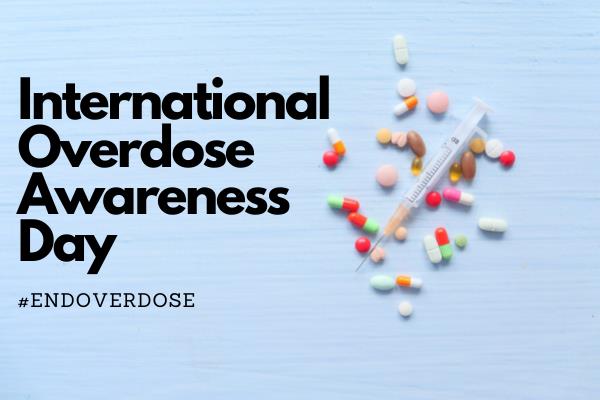Addiction is a disease, and it’s one that is far too prevalent.
The CDC has estimated that 90,237 people have died from overdoses from September 2020 to April 2021. And The United Nations Office on Drugs and Crime reports that North America continues to have the highest drug-related mortality rate in the world.
August 31st is International Overdose Awareness Day, “the world’s largest annual campaign to end overdose, remember without stigma those who have died and acknowledge the grief of the family and friends left behind. Time to Remember. Time to Act.” – The International Overdose Awareness Day Champaign.
Today on the blog we’re covering the facts about overdoses, an expert’s opinion on addiction, and resources for those affected.
Overdosing
Opioids are the leading cause of drug-related death, and in most cases, the deaths could have been avoided. An overdose can be intended as an act of suicide, but a large majority of them are classified as accidental. An overdose occurs when the level of drug toxicity in your body overwhelms its normal functioning.
Signs of an overdose include:
- loss of consciousness
- unresponsiveness
- inability to talk
- slow and shallow breathing
- erratic breathing
- blue, purple, or grey looking skin or fingernails
- choking or gurgling noises
- vomiting
- limp body
- pale or clammy face
- erratic, slow, or non-existent pulse
If you’re ever in the presence of someone who is showing these symptoms, intervene immediately. Death usually doesn’t happen instantly after an overdose and acting quickly can save their life. Unfortunately, many people succumb to avoidable deaths because those around them are too scared to call for help. Always, always call an ambulance if someone is having a life-threatening medical emergency. In most places, police will not dispatch unless there is a threat of danger or violence. And many states have “Good Samaritan” laws that legally protect both the person suffering the overdose and those around who called 911.
Addiction
At the root of it, overdoses are almost always a result of addiction and not a one-off circumstance.
In an interview with Dr. Michael Chang, the medical director at Hope Restored Treatment Center, he discussed the misconceptions that often surround addiction. For instance, the idea “that there is some ‘look’ to addicts,” when in reality “it can be anybody.”
Hope Restored Treatment Center is a program dedicated to helping patients overcome addiction and lead sober lives. Hope Restored’s new-age approach offers therapy, gentle medical-assisted detox, and a safe, compassionate environment to get clean.
In many cases, overdoses occur after a relapse or as a result of someone failing to quit on their own without outside help. This is where professionals with expertise in mental, emotional, and physical health can exponentially help those struggling.
According to Dr. Chang, the most common challenges of getting sober stem from three things.
1. Physical withdrawal symptoms — Withdrawing from alcohol can cause anxiety, tremors or “the shakes”, cravings, even seizures, hallucinations, or death. For opiates, it’s generalized pain, cravings, and anxiety.
2. Underlying mental issues that contributed to the addiction — This includes self-medicating for issues with depression, anxiety, PTSD, etc.
3. Environment — Social situations, social expectations, work stresses, partners with addiction, enablers, proximity, and availability of drugs of abuse can all hinder your ability to get sober.
Dr. Chang says that through the use of ketamine and other innovative approaches of utilizing “psychedelics in conjunction with traditional pharmacology and psychotherapy,” there is a restored sense of hope for those in the depths of addiction. By minimalizing withdrawal symptoms and making the detox process as painless as possible, it’s hopeful this will encourage more people to turn to treatment.
Dr. Chang strongly encourages those who are on the fence about seeking help to take the plunge, and “do it not just for yourself, but for others around you.” “There is almost always collateral damage,” said Dr. Chang.
Resources
If you have lost a loved one to addiction, you are not alone. Millions of people share the pain of loss, and grief and guilt are heavy burdens to bear by yourself. It can be comforting to connect with others in similar situations. International Overdose Awareness Day has a public forum page where anyone can write a tribute for their loved one. You can share their story here.
There are also support groups around the country that aim to help families cope after an addiction-related death. For a list of helpful resources, and to find local grief support resources in your state, visit Myasd.com.
If you or someone you know is ready to accept help for their addiction, the teams at Hope Restored Treatment Center accept patients with open arms. The program is nationwide, currently operating in Texas, Kansas, and New Mexico, with locations opening soon in Arkansas, Arizona, and Oklahoma. To learn more about the services offered, visit the Hope Restored Treatment Center website, or call 1-833-862-7236.




Comments are closed